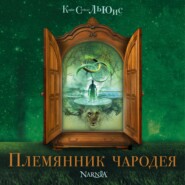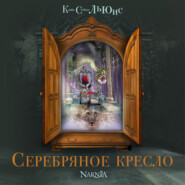По всем вопросам обращайтесь на: info@litportal.ru
(©) 2003-2025.
✖
Collected Letters Volume Three: Narnia, Cambridge and Joy 1950–1963
Настройки чтения
Размер шрифта
Высота строк
Поля
293 (#ulink_7d9f1049-be81-5997-8552-8bde2bd3804a) ibid., p. 62: ‘They would begin with Grace said by the Canon and then the meal would proceed eaten off silver plates, not so pleasant as the china service because scratchy under the knife and fork.’
294 (#ulink_2da2eeea-24fc-53cb-8b5a-8976e38ba233) ibid., p. 83: ‘The Long Gallery…could be a little frightening at night, and generally Phyllis avoided going there alone after dark. One night after summer holidays, however, resentful and unhappy from what she considered an unjust rebuke by her parents, she had run there, and flinging herself on one of the deep window seats, burst into tears of self-pity But almost at once, breaking in upon her grief with a gentle but increasing pressure, she seemed to detect a sympathy in the surrounding atmosphere as if unseen presences thronging about her were offering their love and consolation.’
295 (#ulink_2da2eeea-24fc-53cb-8b5a-8976e38ba233) Charlotte Brontë, Jane Eyre (1847), ch. 2.
297 (#ulink_79bd5730-fc0e-53d8-a351-2691e8bf824a) Genesis 15:1; Luke 2:10.
298 (#ulink_43881956-59d4-5812-96e5-109a9971352c)The Ichneutai of Sophocles: The Searching Satyrs, the Fragment Freely Translated into English Rhyming Verse and Restored by Roger Lancelyn Green (Leicester: E. Ward, 1946).
299 (#ulink_f901ffcc-0261-5586-aaba-330686e6355f) Lewis had sent Evans a copy of Prince Caspian, and he was here referring to the first illustration in Chapter 3. Pauline Baynes wrote to Walter Hooper on 15 August 1967: ‘[Lewis] only once asked for an alteration–& then with many apologies—when I (with my little knowledge) had drawn one of the characters rowing a boat facing the wrong direction’ (CL II, p. 1020).
300 (#ulink_47b44447-d6c5-547a-8c61-e3c377cf6635) Having returned to New Zealand, Bodle sent Lewis a little book of prayers for deaf children that she had written.
301 (#ulink_40052d38-12ec-510f-a178-48f6cee22285) John 14:9.
302 (#ulink_40052d38-12ec-510f-a178-48f6cee22285) John 14:28.
303 (#ulink_40052d38-12ec-510f-a178-48f6cee22285) Acts 17:27.
304 (#ulink_b34e5bef-dd80-562f-bc60-09375aeef06d) See Clyde S. Kilby in the Biographical Appendix.
305 (#ulink_f2c746c4-8942-5b15-9940-b0b2090bd873) Laurence was the second son of Cecil Harwood and Lewis’s godson. See Laurence Harwood in the Biographical Appendix to CL II, pp. 1051-2.
306 (#ulink_52dae6c5-6ad9-5517-9aa3-4b705de5f4a4) At this time Vera Henry was back in her native Ireland. She never recovered from her illness and died in April 1953. The only person at The Kilns who could help with the cooking was the gardener, Fred Paxford (see his biography in CL II, p. 213n). When it was clear that Vera would not be returning, Lewis hired as his housekeeper Mrs Molly Miller, who lived close by in Kiln Lane. There are photographs of Fred Paxford and Molly Miller in Douglas Gilbert and Clyde S. Kilby, C. S. Lewis: Images of His World (Grand Rapids: Eerdmans, 1973), pp. 67, 69.
307 (#ulink_a4d9b1a8-738a-5512-9fd1-03e1373f33d4) ‘Not to us.’ Psalm 115 (Vulgate): ‘Non nobis, Domine, non nobis; Sed nomini tuo da gloriam’: ‘Not to us, O Lord, not to us, but to your Name give glory.’
308 (#ulink_aa3674e6-456f-53a1-a654-d6224e1a1f41) It is known Joy Gresham left for the United States on 3 January 1953.
309 (#ulink_e45d8a73-004d-5f7c-8a5e-f6d7dae423cb) Bonamy Dobrée (1891-1974) was born in London on 2 February 1891 and educated at Haileybury College and the Royal Military Academy at Woolwich. He served with the Royal Horse Artillery and Royal Field Artillery during the First World War. After the war he went to Christ’s College, Cambridge (1920-1). In the following years he published many scholarly books. In 1936 he was appointed to the Chair of English Literature at the University of Leeds, where he remained until his retirement in 1955. Dobrée was one of the General Editors of the Oxford History of English Literature, and his contribution to the series was English Literature in the Eighteenth Century, 1700-1740 (1959). He died on 3 September 1974.
310 (#ulink_e95bbdf3-2f21-548d-92e6-e6c7f7e04d1e)The Wanderer is an Anglo-Saxon poem of 115 lines. This is Lewis’s translation of lines 9-14.
311 (#ulink_548006c7-e068-583b-a138-c87b416619d7) Lewis probably meant by this ‘A Normal Male Person’.
* (#ulink_791817f9-3d3d-5016-80e3-75650af5381c) Please forgive. The smudge has a long and complicated history, if you but knew. First I always was a clumsy brute: ten thumbs and not a finger among them.
(#ulink_6e18049c-f13d-53e4-a675-bcd4c93084b6)
1953 (#uab6a892d-65f5-5b6b-a50d-b1b354fd0ecb)
TO J. KEITH KYLE (BBC):
(#ulink_51ba216d-a077-5db1-ae7a-7f8ec1335eb0)TS
REF.3/53.
Magdalen College,
Oxford.
1st January 1953.
Dear Mr. Kyle,
I wish the series every success, but am snowed under with work at present, and cannot assist: anyway, if the public does’nt by now know what I believe I should’nt enlighten them much in 3 1/2 minutes more!
Yours sincerely,
C. S. Lewis
TO RUTH PITTER(BOD):
Magdalen College,
Oxford.
Jan 2nd 1953
Dear Miss Pitter–
The year, which I had not thought much of so far, begins to mend with a letter and a prime article from you. And then, as you say, the skies.
It was beautiful, on two or three successive nights about the Holy Time, to see Venus and Jove blazing at one another, once with the Moon right between them: Majesty and Love linked by Virginity—what could be more appropriate?
The Return to Poetic Law is a noble piece and would do good if any of those who most need it were at all likely to take any notice.
(#ulink_cbfab0a0-a8b8-5f9d-afdc-443d8b34d884) But they are all in Groups and Parties. What matters to them is not what is said but who says it: one of the Party or an outsider. ‘A minor specialist’s subject’, as you say. Yet some one or two may heed you: you are right to testify.
I do most heartily agree with you about having had too much shame. (Do you, by the way, remember the character-study of Shame in the Pilgrims Progress, all in a conversation between Christian and Hopeful?
(#ulink_fac66050-eec5-5b16-86ec-37b8c3cdd7fe) It is superb fun). It is v. sinister that ‘embarrassing’ or ‘embarrassingly bad’ has become an ordinary term of criticism: this, you see, is a direct appeal away from the reader’s consciousness of the poem to his social self-consciousness. While he reads he must be aware that the set are watching him reading.
That is a bad business, losing your country home. I have lost mine while remaining in it, i.e. it has ceased to be country. Not that I’d quite say ‘All things are taken from us and become Parcels and portions of the dreadful past’. Dreadful isn’t the word at all. But it’s thrilling to hear of your ‘closing in on’ Oxford.
(#ulink_c480fa56-c160-586e-b824-9fa52140908a) It wd. be lovely if you became a neighbour.
My brother joins me in best wishes for the year. How many—and how few—of these here years there seem to be!
Yours sincerely
C. S. Lewis
During her weeks at The Kilns Joy Gresham received a letter from her husband, Bill, saying that while he knew Joy would never be anything but a writer, ‘Renée has a different orientation: her only interest is in taking care of her husband and children and making a home for them.’ The ‘optimum solution, as he saw it, ‘would be for you to be married to some swell guy, Rene and I to be married, both families to live in easy calling distance so that the Gresham kids could have Mommy and Daddy on hand.’
(#ulink_2d138494-8705-5975-b5ac-f0f24db674a0)
Joy showed this letter to Lewis and she told Chad Walsh that she asked him for advice. ‘He strongly advised me to divorce Bill,’ she said.

















